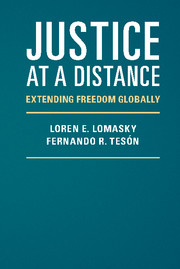7 - States
Published online by Cambridge University Press: 05 November 2015
Summary
In October 2011, the Libyans, with aid from the North Atlantic Treaty Organization (NATO), overthrew and killed Muammar Qaddafi, their ruler for more than forty years. Between 1969 and 2011, the world treated the Libyan government in all important respects as the genuine representative of the Libyan people. Under Qaddafi's rule, Libya enjoyed the fundamental powers that international law grants to every state: diplomatic immunities, treaty-making capacity, the right of self-defense, and most important, plenary jurisdiction, that is, the right to enact and enforce laws in its territory. Libya participated normally in regional and global organizations, often in positions of leadership. Qaddafi's envoys were received as proper ambassadors in the United Nations and in foreign capitals. Qaddafi's Libya was, in short, a member in good standing of the international community. This regal treatment continued even after it became obvious that the Libyan regime was responsible for the bombing in 1988 of Pan American Flight 103 that killed more than 200 innocent people. Two staunch antiterrorist Western leaders, George W. Bush and Tony Blair, rejoiced at Qaddafi's renunciation of weapons of mass destruction and welcomed an apparently redeemed Qaddafi to the family of nations. And in 2009, U.S. Senator John McCain (not known for his softness toward dictators) praised Qaddafi for his peace-making efforts in Africa and recommended expanding U.S. relations with Libya.
However, as soon as the rebels grew stronger and popular support for Qaddafi subsided, observers changed their tune: they started using the words “tyrant” and “dictator” to refer to Qaddafi. These words, of course, were as accurate in 2011 as they had been during the forty-two years of Qaddafi's rule. We do not think that it is an exaggeration to say that the Qaddafi regime was a criminal outfit that ruled by sheer force and intimidation. Yet, for more than four decades, outsiders treated this regime with deference and respect. They might not have liked Qaddafi, but they accepted him as the legitimate representative of Libya. What accounts for this phenomenon? Was there anything that justified this presumption of legitimacy of a state that, on any reasonable philosophical account, was (to use St. Augustine's words) no more than a den of thieves? Was there anything about Qaddafi that gave him the right to be obeyed by the Libyans and the right to be treated with respect by foreign dignitaries?
- Type
- Chapter
- Information
- Justice at a DistanceExtending Freedom Globally, pp. 172 - 215Publisher: Cambridge University PressPrint publication year: 2015



